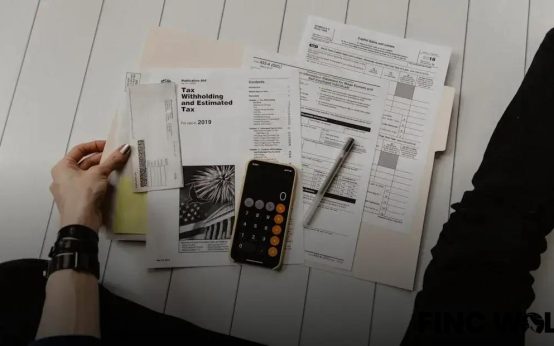As we approach 2025, many are asking: will the housing market crash? It’s a topic that stirs concern among homeowners and investors alike. In this article, we delve into economic indicators, expert predictions, and market trends to provide a comprehensive analysis. With housing’s volatility, understanding these factors is crucial.
Current State of the Housing Market
The housing market today is experiencing significant fluctuations. Home prices have soared over the past few years, but growth rates are showing signs of slowing. Several metropolitan areas are witnessing increased inventory, leading to more options for potential buyers. This shift offers opportunities for negotiations, but it also comes with uncertainties.
One of the major factors influencing the market is the ongoing impact of the pandemic, which created unprecedented demand as people adjusted their living arrangements. Work-from-home trends have increased the demand for larger spaces and homes outside urban centers, reshaping the real estate landscape.
Interest rates have played a critical role in supporting the housing market’s momentum. However, with potential hikes on the horizon, borrowers may face higher costs, affecting affordability and potentially cooling down the demand.
The rental market is also seeing shifts. With more renters considering home ownership due to changing work scenarios and lifestyles, the pressure on rental prices in many urban areas has started to ease. Yet, challenges remain, especially in cities with historically high rent.
Considering broader economic conditions, job growth remains a crucial element. Stability in employment rates provides buyers the confidence to invest in property, yet economic uncertainties persist. With inflationary pressures, the cost of building materials and homes has escalated, further complicating market dynamics.
Economic Indicators and Trends

Examining key economic indicators can provide valuable insights into the future of the housing market. These indicators include GDP growth, unemployment rates, and consumer confidence. When GDP is strong, more people can afford to buy homes, driving up demand. Conversely, high unemployment may reduce this demand as fewer people have stable incomes.
Another crucial factor is the inflation rate, which affects the cost of living and purchasing power. If inflation is high, it can complicate affordability in the housing market. Furthermore, the analysis of wage growth trends provides a perspective on whether incomes are rising fast enough to keep up with or outpace housing prices. When salaries increase steadily, homebuyers have more purchasing power, supporting market growth.
The balance between supply and demand is influenced by construction and development trends. If construction activity is robust, it may alleviate housing shortages, impacting prices. However, an excess supply could lead to a stabilization of prices or even a downturn in certain areas. Monitoring these trends helps anticipate market shifts.
Lastly, global events can have ripple effects on the local housing market. Economic health in major economies often impacts domestic markets through capital flows and investment opportunities. Hence, staying informed about international economic developments is beneficial.
Expert Predictions for 2025
In the dynamic world of real estate, projecting future market trends is crucial for buyers, sellers, and investors. Experts analyzing the housing market’s potential trajectory in 2025 have highlighted several key factors. Firstly, they suggest that the ongoing urban-rural shift, accelerated by the pandemic, may stabilize, influencing demand in suburban and rural areas. Technology advancements continue to reshape how we buy and sell homes, with virtual tours and online closing processes becoming the norm.
Economic health will play a pivotal role. Analysts predict that if inflation rates remain high, they might dampen purchasing power, affecting housing affordability. However, if economic recovery persists, consumer confidence could bolster market activity. Experts are eyeing interest rates closely since fluctuations can significantly impact mortgage accessibility and buyer enthusiasm.
Moreover, the role of government policies, such as tax incentives for first-time buyers or sustainable housing developments, could drive changes in market dynamics. The implementation of eco-friendly building practices is gaining momentum, with expectations that regulations might adapt to encourage green construction.
An interesting trend being observed is the potential increase in rental markets. Experts predict that rising property prices could push more individuals towards renting, especially among younger demographics. This shift may also generate opportunities for real estate investors in the rental sector.
In summary, expert predictions for the housing market in 2025 consider a blend of economic, technological, and regulatory factors. These suggest a market that is both challenging and rife with new opportunities, requiring stakeholders to remain agile and informed.
Impact of Interest Rates

Interest rates play a crucial role in the housing market, influencing both the cost of borrowing and the overall economic atmosphere. When interest rates are low, buyers are often more eager to purchase homes, as mortgage costs become more affordable. This increase in demand can drive home prices up as buyers compete for limited inventory. Conversely, when interest rates rise, borrowing becomes more expensive, which can dampen demand and lead to a cooling of the housing market.
Additionally, interest rates affect homeowners with variable-rate mortgages, as their monthly payments can change in response to rate fluctuations.
Long-Term Effects
Over time, changes in interest rates can alter homeownership affordability, influencing who can purchase homes and how much they can afford.
Central banks often adjust interest rates to control inflation and ensure economic stability. However, these adjustments can sometimes lead to unintended consequences in the housing sector.
In 2025, market watchers anticipate that any changes in interest rates will need careful consideration due to potential ripple effects throughout the housing economy. It’s vital for potential buyers and current homeowners to stay informed about potential interest rate shifts and consider how these could affect their financial planning and housing market strategies.
Government Policies and Regulations
The government policies and regulations are crucial in shaping the housing market’s trajectory. In recent years, numerous policies have been enacted to stabilize and stimulate the sector. One significant policy area is housing finance. Governments may offer incentives like tax breaks or subsidies to encourage buyers, which can affect demand trends.
Additionally, regulations around zoning and land use play a pivotal role. By controlling how land can be used, local authorities influence the amount of housing supply available. Changes in these regulations can lead to either increased housing development or constraints, impacting market dynamics.
In the context of a potential market crash, monetary policies are also influential. Central banks, through regulation of interest rates, can either curtail or encourage housing affordability. Lower rates usually increase demand, while higher rates may deflate pricing as borrowing becomes more expensive.
Furthermore, government interventions during economic downturns, such as bailouts or stimulus packages, aim to sustain the housing market. Such actions can provide temporary relief but also carry long-term consequences.
Trade policies and international relations can indirectly affect the housing market as well. Tariffs on construction materials can increase building costs, while international investment in real estate can drive prices upwards. The government’s stance in these areas will influence both local and national housing markets.
Housing Market Opportunities and Risks

Exploring the housing market can present both opportunities and risks for potential buyers and investors. Understanding these elements is crucial for navigating what many are questioning as a volatile future, particularly towards 2025.
Opportunities
With the economic fluctuations, savvy investors may find potential buying opportunities in undervalued areas or emerging markets. Price adjustments, driven by interest rate variations or changes in governmental policies, could provide openings for entry into the market at a lower cost.
Technological advancements also play a role, offering tools and platforms that make real estate transactions more transparent and efficient. Potential buyers can access data-driven insights to make informed decisions.
Risks
However, the housing market is not without its risks. Economic uncertainties can lead to unpredictable market conditions. Changes in job markets, inflation rates, and lending policies may adversely impact the real estate sector.
Moreover, regulatory changes or unexpected shifts in interest rates can pose significant hurdles to market stability. Investors need to be vigilant and stay informed about policy discussions that may affect housing affordability and availability.
Balancing these opportunities and risks requires careful analysis and ongoing market monitoring. Engaging with financial advisors or real estate experts can provide additional perspectives and guidance.





